Ever since Charles Darwin first set foot in the Galapagos Islands back in 1835, this archipelago has been renowned for its astonishing array of wildlife – a biodiverse paradise unlike anywhere else on Earth. There’s a reason, after all, that the Galapagos Islands were the first-ever entry on UNESCO’s esteemed list of World Heritage Sites.
And while we are incredibly privileged to operate here in one of the planet’s most untouched ecosystems, we also recognize that, as a result, it is our responsibility to do all we can to protect the creatures we share these islands with, both above and below the waves.
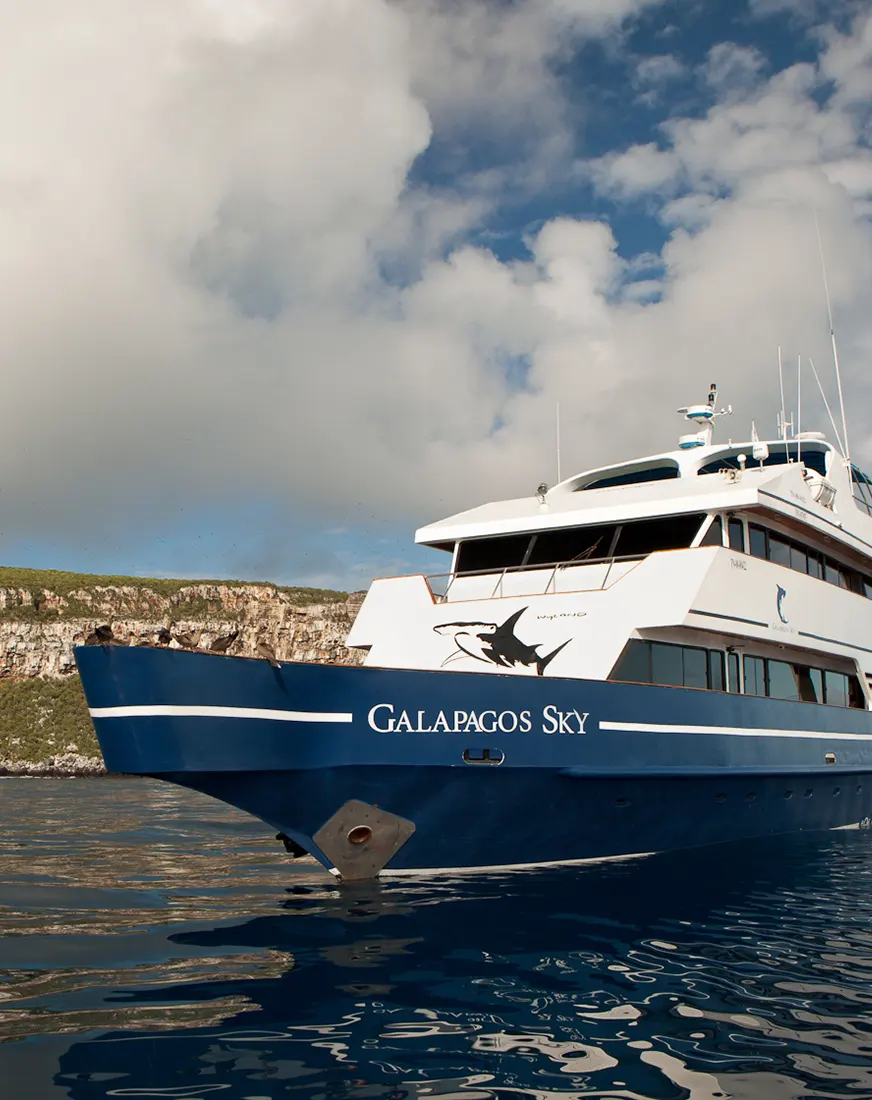
First carbon neutral operation in Galapagos
In 2006, Ecoventura became the first company in Galapagos (and Ecuador) to achieve Carbon Neutral status. We reduce carbon emissions from our four yachts and offices, including business travel, and offset them through a portfolio of projects managed by the US-based Native Travel Offsets (NETO). By purchasing carbon credits, Ecoventura supports the development of wind turbines and other renewable energy projects, directly contributing to the reduction of global carbon emissions.
By 2007, we had offset 4,435 short tons of CO2 to combat global warming. By 2008, our energy practices, including high-performance oil filters, had reduced our emissions by 10%, bringing our offset total to 4,035 short tons of CO2. Significantly, Ecoventura covers the full cost of offsets upfront, ensuring carbon neutrality without relying on passengers to opt-in. We also encourage passengers to offset additional portions of their trip and often collaborate with other sustainable travel providers, such as airlines and hotels.
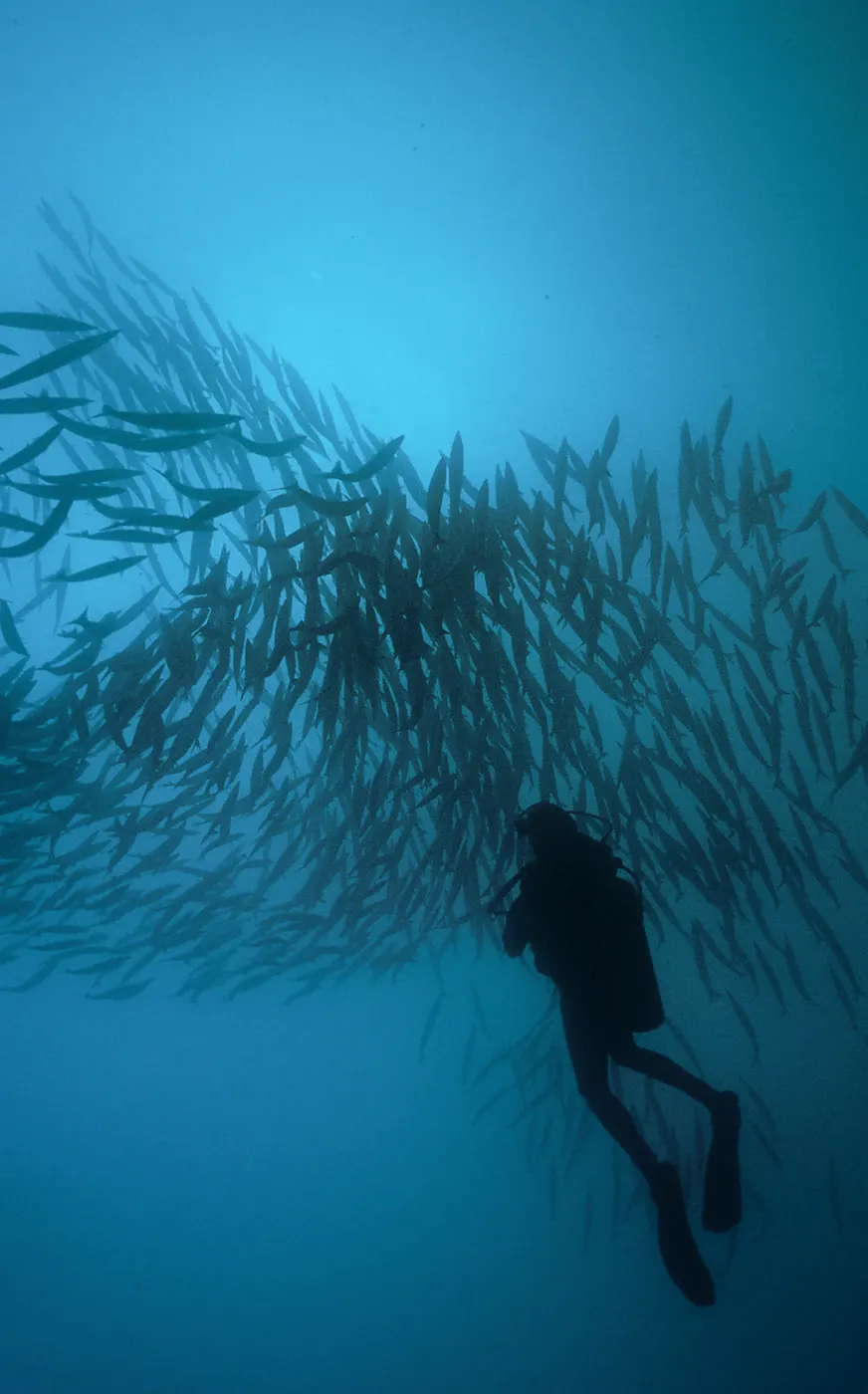
Charles Darwin Foundation - Galapagos Biodiversity & Education for Sustainability Fund
We are deeply committed to supporting the Charles Darwin Foundation (CDF), a non-profit organization dedicated to conducting scientific research in the Galapagos Islands.
Established in 1959, the CDF has played a crucial role in protecting the natural resources of the Islands and sharing scientific findings to aid in their conservation.
In 2017, Ecoventura formed a groundbreaking partnership with the CDF to create the Galapagos Biodiversity & Education for Sustainability Fund (GBESF). This initiative aimed to strengthen our commitment to preserving Galapagos’ unique ecosystems and biodiversity by providing financial support to critical research and conservation programs.
To date, Ecoventura has contributed $476,872 to the fund, supporting CDF’s scientific research, conservation projects, and monitoring initiatives led by the Galapagos National Park. The Fund also recognizes the essential role of local children and youth as future stewards of the Islands, funding innovative educational projects and awarding scholarships to exceptional young individuals.
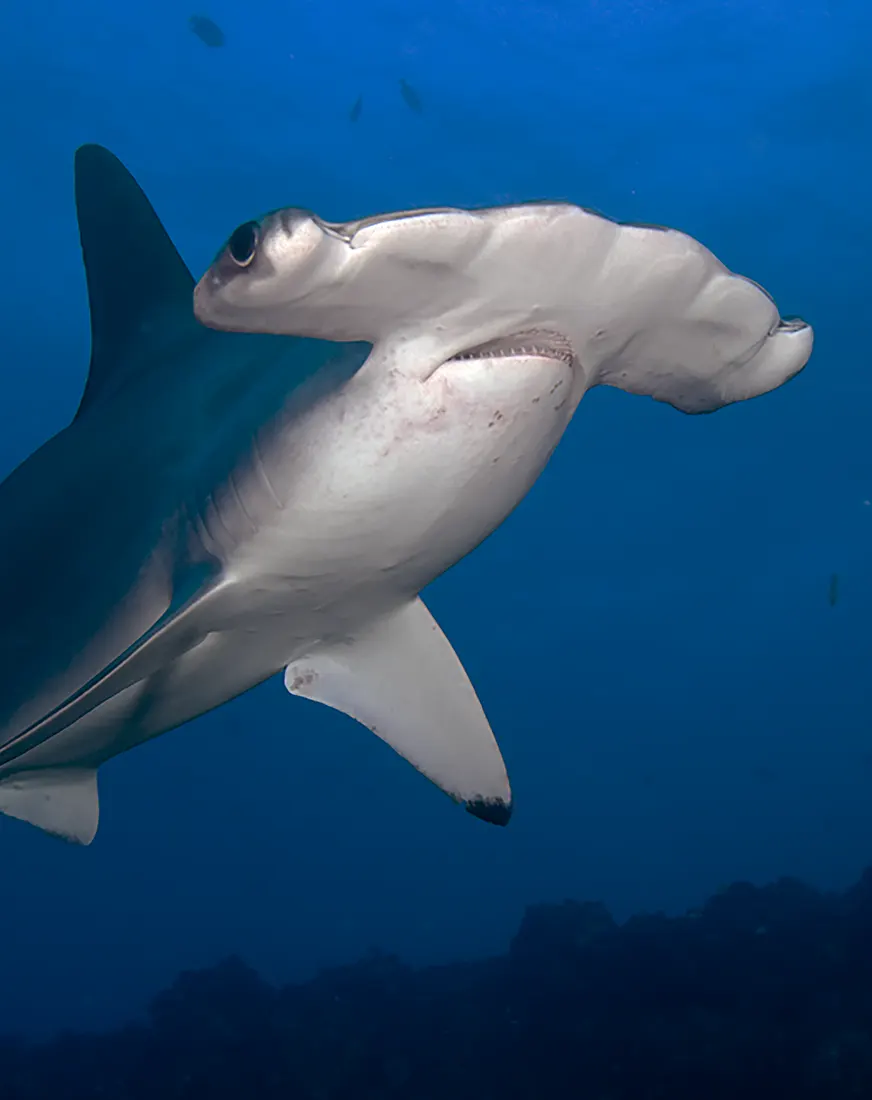
Supporting CDF’S Shark Ecology and Conservation Program
Understanding how sharks use marine protected areas like the Galapagos Marine Reserve and their movements outside these boundaries is crucial for assessing their vulnerability to illegal, unreported, and unregulated fishing, which poses a major threat to their survival. This information is essential for developing effective conservation strategies. The CDF’s Shark Ecology and Conservation Program has focused on tracking sharks’ movements and migratory routes to inform management and protection efforts.
Scalloped hammerhead sharks, categorized as Critically Endangered by the IUCN, have been a particular focus. Tagging and monitoring these sharks were key in identifying critical areas for protection, leading to the creation of the Hermandad Marine Reserve. Notably, Cassiopeia, a pregnant scalloped hammerhead shark tagged with the support of the GBESF, provided the first documented satellite track between Galapagos and her birthing grounds in Panama, covering over 4,000 kilometers. However, some tagged sharks were captured by fishermen, highlighting the need for both effective marine protected areas and improved regional management to reduce shark mortality.
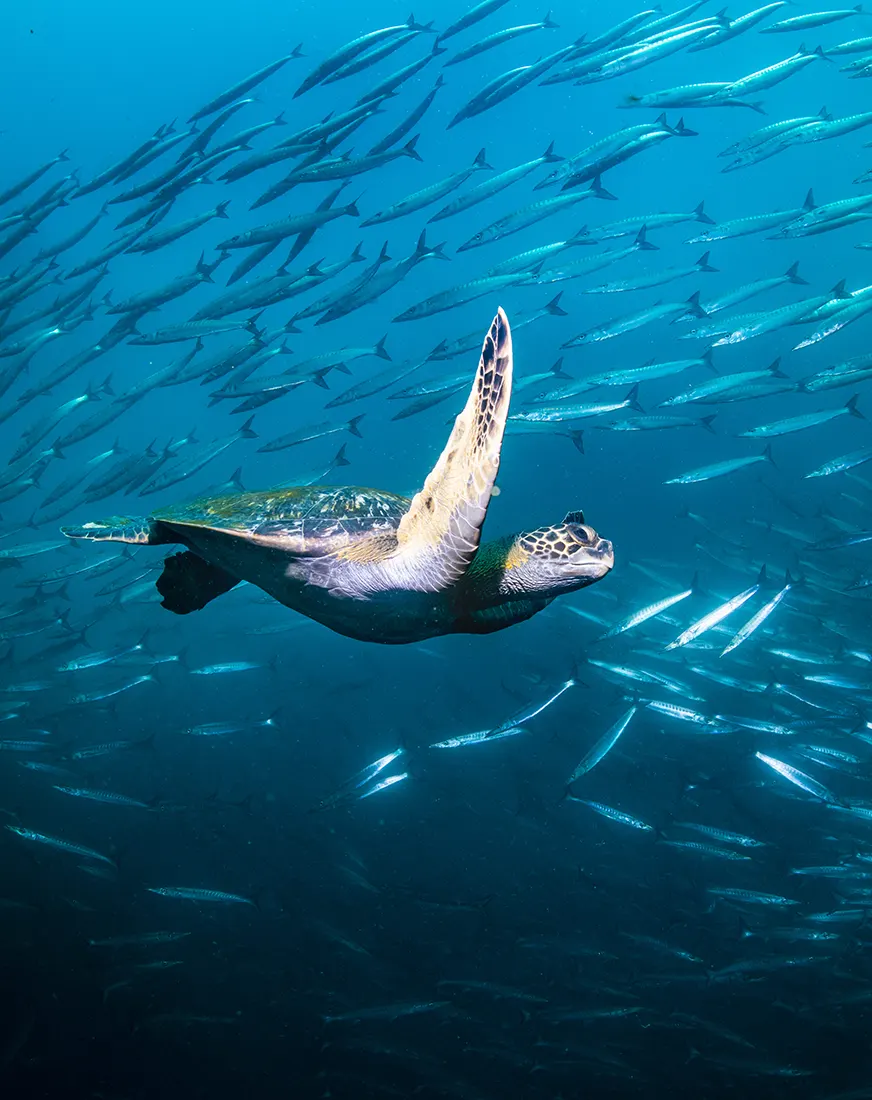
Reducing plastic waste and pollution
For many years, we have been committed to reducing single-use plastics. Since 2017, we have replaced single-use plastic bottles and straws with refillable bottles and paper straws for those who prefer them. Our yachts are equipped with filtered water refill stations, eliminating the need for single-use water bottles while sailing with us. In our bathrooms, we provide shampoo, soap, and body wash in dispensers, avoiding single-use amenities.
Aware of the potential damage plastics can cause and mindful of our broader responsibilities to the islands, we initiated this effort well before it became mandatory, setting an example for our peers to follow.

Sourcing ingredients locally from responsible providers
Our chefs work tirelessly to provide a sustainable dining experience, always considering the environmental and social impacts of our menus.
We prioritize sourcing over 53% of our ingredients locally from small artisan businesses based on the islands. For example, eggs, bread, and other staples are purchased directly from smallholders. Fruits and vegetables are procured from San Cristobal, while meats and dairy come from Santa Cruz, with 50% of the dairy being organic.
To further support local producers, we have recently introduced wine from Dos Hemisferios Bodega in Ecuador as our house label, ensuring that our beverages are sourced as locally as possible.
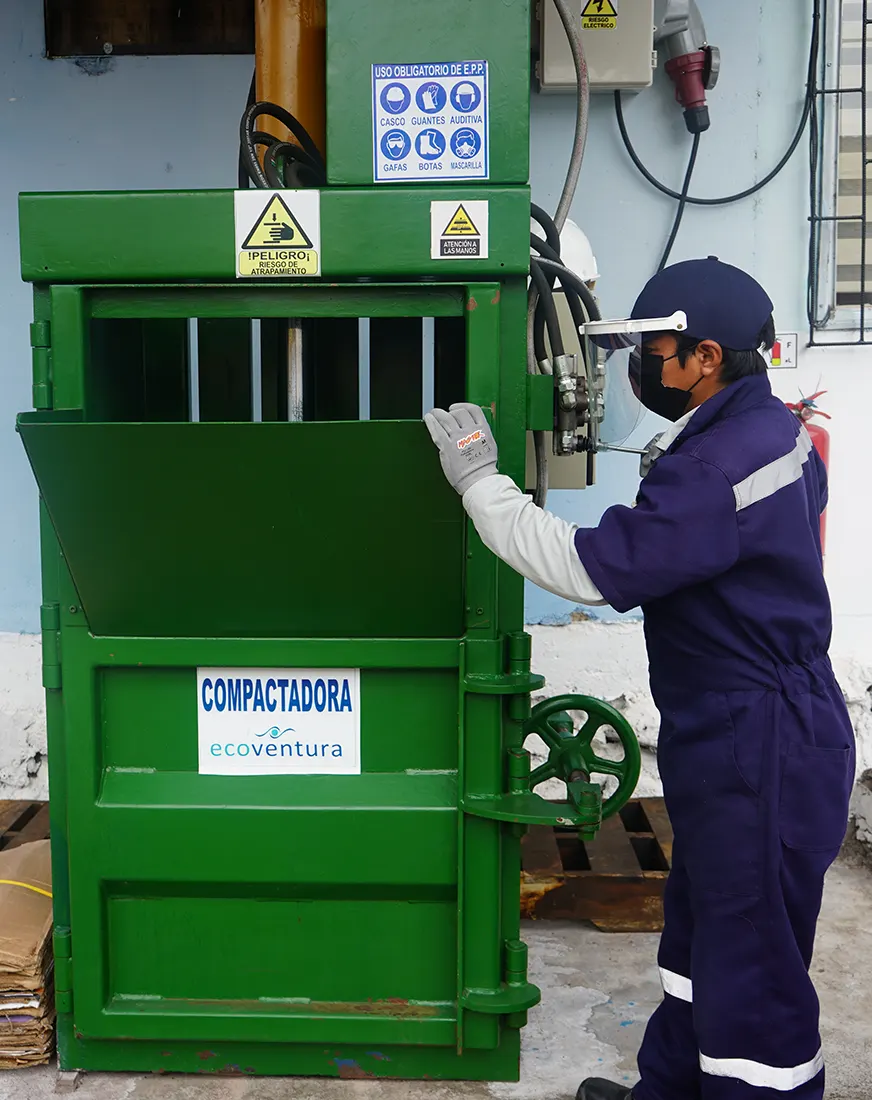
Recycling facility to reduce landfill in the Galapagos
As part of our ongoing sustainability journey and commitment to reducing our environmental impact, in September 2022, we introduced two state-of-the-art recycling machines in the Galapagos. This initiative, developed in partnership with Avianca Airlines, aims to prevent approximately 9,000 kg of waste annually from ending up in landfills on the islands.
By processing waste for transport to recycling centers on the Ecuadorian mainland, we proudly declare that none of the waste generated on our yachts will be sent to island landfills.
Our collaboration with Avianca, which operates regular flights between the Galapagos and the mainland, ensures that the scheme avoids additional carbon emissions. Waste is transported on existing scheduled flights, thereby minimizing environmental impact.
We are dedicated to seeking new and innovative ways to emphasize the “ECO” in Ecoventura. By continuously assessing our operations, we strive to further protect and preserve the rich flora and fauna that have thrived in this natural paradise long before the islands were first discovered.
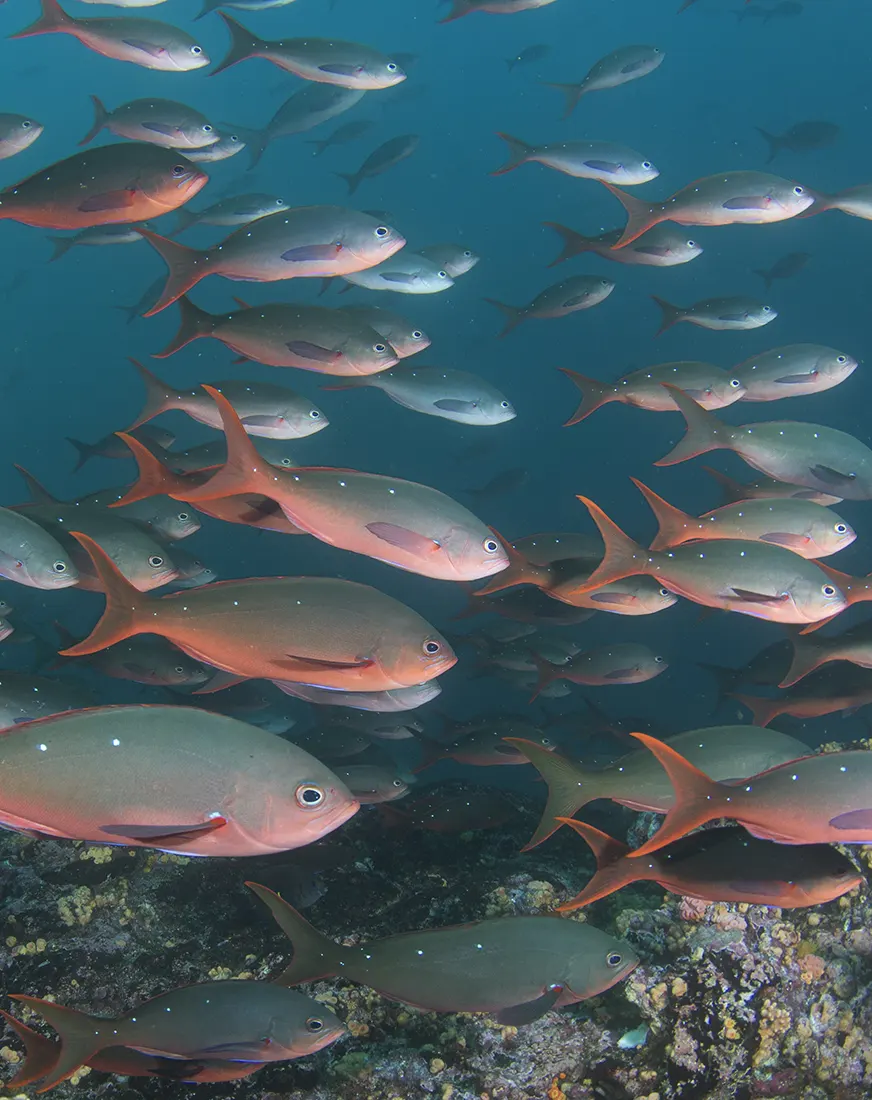
Supporting conservation efforts in the Galapagos
We have established partnerships with several conservation organizations in the Galapagos, each playing a crucial role in safeguarding wildlife against various threats.
In collaboration with the World Wildlife Fund, we established the Galapagos Marine Biodiversity Fund, which raised over $400,000 to support the local community and funded scholarships for Galapagueño students from 2006 to 2016. Additionally, through our associations with Ecology Project International and Island Conservation, we actively engage in community outreach and mentoring programs, providing vital support for conservation efforts across the islands and surrounding seas.
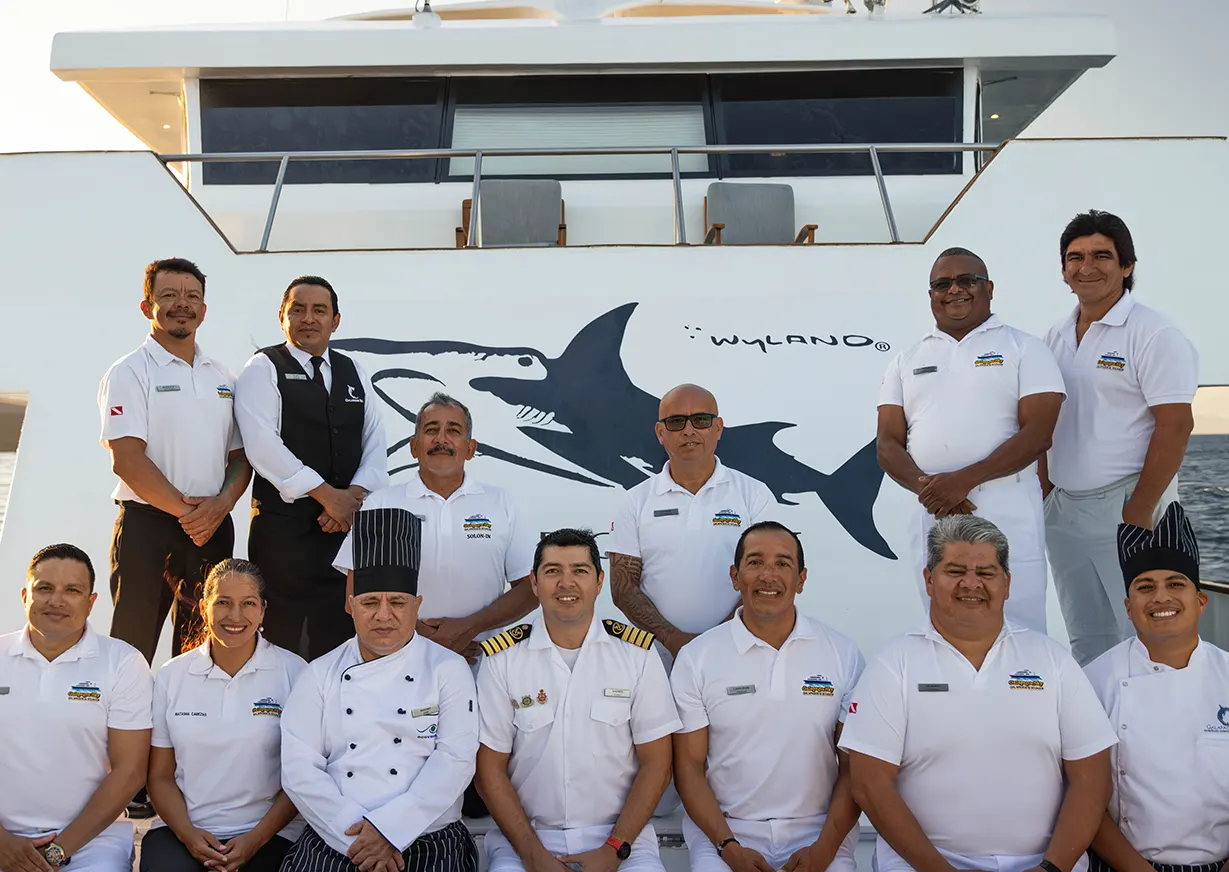
Empowering the local community in Galapagos
Almost every member of our team is Ecuadorian, with approximately 65% calling the Galapagos home. Our commitment to supporting the local community is deeply personal; many of our team members have children attending local schools and maintain close family ties and friendships on the islands.
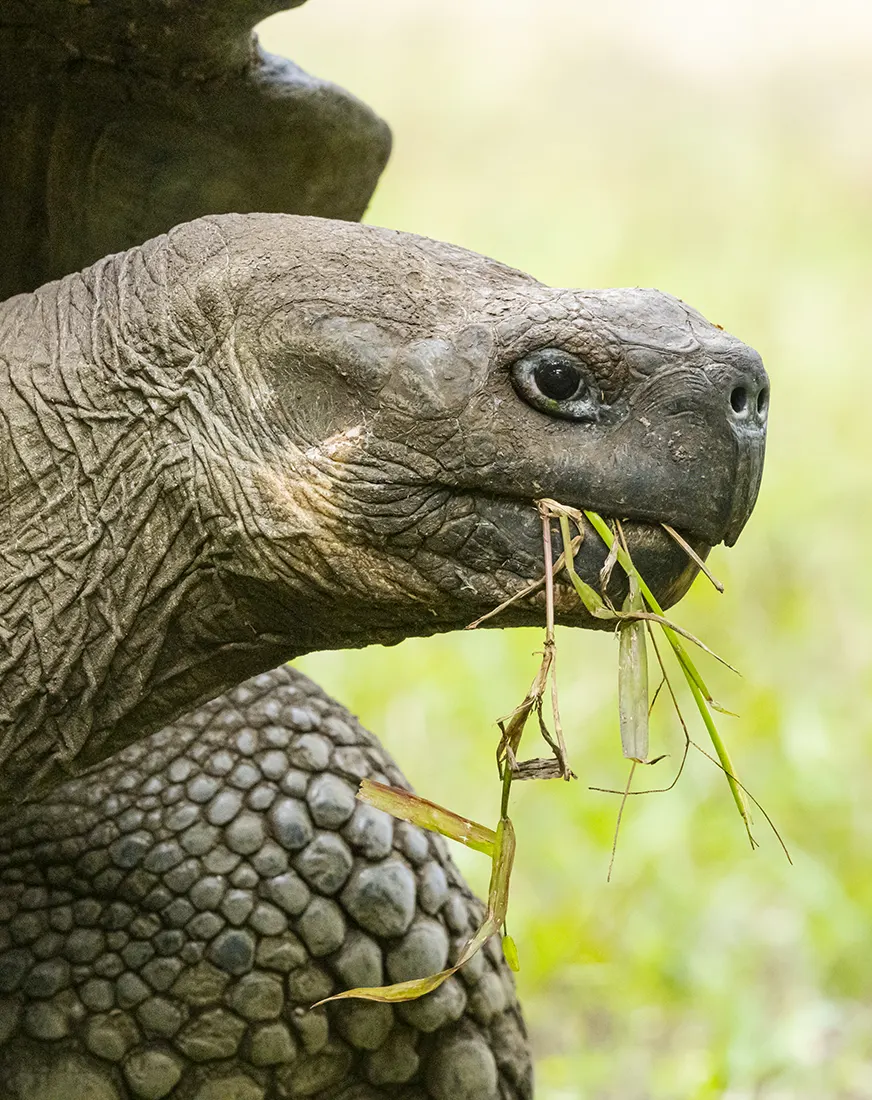
Education for Sustainable Communities (ECOS)
ECOS is a local Galapagos foundation that evolved from Ecology Project International (EPI) to continue the crucial educational programs initiated in 2006. Focusing on sustainable development and education, ECOS aims to advance broader conservation efforts and support the Galapagos National Park’s initiatives. By fostering sustainable practices, promoting active community involvement, and conducting inclusive experiential education, youth mobilization, and educational research, ECOS plays a vital role in engaging local communities and inspiring the next generation of conservationists.
Ecoventura supports ECOS by offering guests the opportunity to join conservation-focused field excursions with local students and participate in walking tours that highlight local traditions and community conservation efforts.